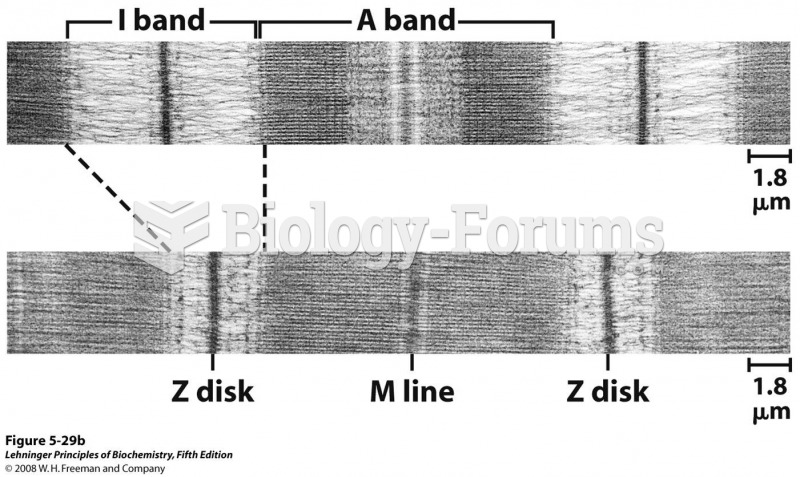This topic contains a solution. Click here to go to the answer
|
|
|
Did you know?
Despite claims by manufacturers, the supplement known as Ginkgo biloba was shown in a study of more than 3,000 participants to be ineffective in reducing development of dementia and Alzheimer’s disease in older people.
Did you know?
In 1844, Charles Goodyear obtained the first patent for a rubber condom.
Did you know?
There are more sensory neurons in the tongue than in any other part of the body.
Did you know?
The highest suicide rate in the United States is among people ages 65 years and older. Almost 15% of people in this age group commit suicide every year.
Did you know?
Eat fiber! A diet high in fiber can help lower cholesterol levels by as much as 10%.







